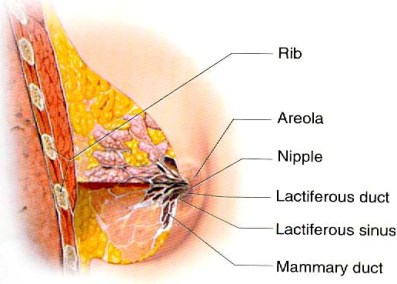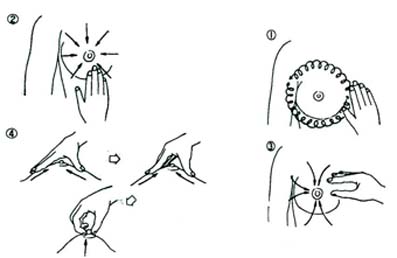Instructions after delivery

Maternal health after delivery
- Maternal health is as important as the baby’s health, so she can care for her baby.
- After delivery the Mother needs a minimum of 2 weeks rest. She should avoid heavy work and` parties for at least 1 month after delivery.
- Caring for her baby is a simple thing she can do, and she should sleep when the baby sleeps.
- Eat a healthy, balanced diet that contains meat, fish, cheese, eggs, and milk, vitamins from liver and kidneys, vegetables and fruits.
- The Mother is asked to ambulate, 6 hours after delivery.
- Treat constipation in order to avoid hemorrhoid.
- Do not return to work for 6 weeks after delivery.
- Exercise regularly, so that your body may return to its previous healthy condition.
- Visit your doctor, after delivery for counselling, regarding lochia, lactation, and menses and how to stop breast feeding. Also, your Doctor needs to check blood pressure and weight and compare it with readings before delivery. You also should ask about continuing multivitamins, and ask about your next pregnancy, if planned.
- There are some emotional and physiological changes that occur to the postpartum female:
- Emotional changes:
- Most Mums experience stress and depression post delivery. This is because of sudden changes in their life, and the increase in responsibility and hormonal changes. So, you need to talk to your husband about this, because a new baby does not mean only new responsibility, it also mean a lot of happiness and joy.
- You may face some problems when you carry your baby, like fatigue, infection or confusion. Most of these problems will not be dangerous, but you should consult your doctor immediately if you notice anything out of the ordinary.
- You may be exhausted or moody because you are taking the responsibility of your baby and your husband. You may lose interest due to hormonal changes, biochemical changes or electrolyte imbalance. All these can be managed by encouragement, love and cooperation from your family.
- Physiological changes after delivery:
- Post partum period extends from 6-8 weeks after delivery, and by this time your organs return back to their previous status before pregnancy:
- Uterine contractions:
- 10 days after delivery, the uterus begins to contract in order to return back to the pelvis.
- After 6 weeks, it returns back to its normal size, pre-pregnancy.
- If you are still feeling your uterus in the abdomen, 2 weeks after delivery, you should consult your doctor.
- Care about your perineum:
- Your vagina will return back to its normal shape 10 days after delivery unless there is infection so, be careful about your perineum, and use hydrogen peroxide cottons to clean your perineum from front to the back in order not to get infections from your anus.
- Bowel motion and urination after delivery:
- You may notice an increase in your urine volume because your body wants to get rid of excess water through your kidneys.
- Also, because of abdominal muscles relaxation, a full bladder may cause post partum hemorrhage.
- You may have constipation or hemorrhoids after delivery so try to pass motion daily and clean your anus very well, you can use laxative to help you.
- Breast Care:

- Your breasts may enlarge suddenly after delivery, due to the increase in your prolactin level, which produces milk.
- You may experience breast engorgement on the 3rd/4th day after delivery so you need to do gentle massage daily.
- You should care for your breasts, and moisturize your nipples, so that you do not end up with mastitis and fever.
- You should masaage old milk out before breast feeding your baby.
- Firstly, put a warm towel on the breast.
- Try to massage around your breast by doing circular movements.
- Hold your breast between the thumb and the index finger, as if you are milking it and do this in different directions, and pull your nipples up also in different directions to milk it.
Breast feeding ideas:
- To know if the amount of milk is enough, you can ask your doctor, but you can do these tests to figure it out:
- If your baby is gaining weight or not.
- If your baby leaves your nipple easily after feeding him.

- If your baby has normal bowel movement.
- If your baby sleeps long hours.
- If you feel it is not enough, give your baby 100cc from appropriate baby’s milk after you have breast fed him.
- To produce more milk, do not give your baby a bottle before breast feeding. Hold your baby on your breast for 20 minutes, try to relax and drink a lot of water, juice, vitamins.
How to Care For Your Health After Delivery:
- After delivery, you will start to lose, “baby fat,” as you return back to your pre-pregnancy weight. This should take up to the 6th week post partum.
- To produce more milk, do not give your baby a bottle before breast feeding. Hold your baby on your breast for 20 minutes, try to relax and drink a lot of water, juice, vitamins.
- You need to eat 4 meals daily at least, in order to meet your daily requirement. Try to include protein such as meat, eggs, milk and grains in your meals.
- Ambulate early and take a shower within 24-48 hrs after delivery. Excessive bed rest, for a long period, may cause abnormal positioning of the uterus, and back pain.
- Exercise regularly beginning 2 weeks after delivery.
- Visit your doctor 5-6 weeks after delivery in order to check your health.
Take special Care of your diet and weight:

- Most women complain of weight gain after delivery, more than pre pregnancy weight, which decreases 2-3 days after delivery. Most of the weight was in the baby’s weight, amniotic fluid, placenta and increased blood volume. All of these will disappear after delivery.
- During the last month of pregnancy, the uterus weight may reach 1 kg, then it decreases gradually down to 50-60 gm, so, it may temporarily feel that you are walking on air, (floating).
- Fat cells may take a long time to disappear, but do not follow a strict diet because it will affect your health. Try to eat a balanced diet and get sufficient rest.
- You will also lose more fat and amino acid in milk when you breast feed your baby.
- If you gain weight, this is not due to pregnancy but because of bad habits. Avoid fatty and high calorie foods and stick with a lot of milk, fruits, vegetables and a high protein diet.
- You may need somebody to help you in daily house work until you feel strong enough to resume it on your own.
- Do not use the bath tub until vaginal discharge has stopped. Try to take a warm shower for 10 minutes only, each time.
Advice regarding Room temperature after delivery
- The best temperature is 20c (68f), 60% moisture and good ventilation is required.
- Avoid the use of air conditioning as sudden changes in temperature may cause you to contract the flu.

- Menstruation differs from one female to another. Some will have menses after a few weeks others may need up to 1 year.
- More than 90% of Mothers will menstruate within a month, but lactating mothers may take a longer time, sometimes up to 3 months after delivery. Do not be worried that you may be pregnant, unless you notice nausea.
- Intercourse should be avoided in the last 2 month of pregnancy as there is a danger of rupturing membranes, vaginal infection, and preterm labour.
- After delivery, there will be excessive vaginal discharge called lochia. It is not appropriate to have intercourse. After your incision is healed and lochia disappears, you can resume intercourse. This will be 6-8 weeks after delivery.
Family planning - Contraception:
- The appropriate time to have another child will be 6 month-1 year after delivery. The mother must be allowed to returned to good health.
- Women menstruate usually after 1-2 month after delivery but it may tarke 3 months.
- Mother can ovulate 40-50 days after delivery. She should talk to her husband and consult her doctor regarding contraception.
About family planning methods:
There are 2 methods for family planning:
- Temporary:
- As with using male condom, oral contraceptive pills intrauterine device (IUCD) vaginal ring.
- Premenant:
- As with tubal ligation
- Regarding the efficacy of each method:
- Failure rate for oral contraceptive pills is 0.1%.
- Failure rate for IUCD 2-4%.
- Failure rate for vaginal Ring 1%.
- Failure rate for condoms 14%.
- You need to consult your doctor about the appropriate method for you. If you are breast feeding, you need to take a special type of medication.
- You should be examined 6 weeks after delivery, including your blood pressure, weight, urine, breast and perineum.
Baby Names Book, Arabic Baby Names
http://www.babynamesbook.net/
Dr Najeeb Layyous F.R.C.O.G
Consultant Obstetrician, Gynecologist and Infertility Specialist







 Pregnancy Due Date Calculator
Pregnancy Due Date Calculator
 Chinese Gender Predictor
Chinese Gender Predictor
 Ovulation Calculator
Ovulation Calculator
 IVF Due Date Calculator
IVF Due Date Calculator
